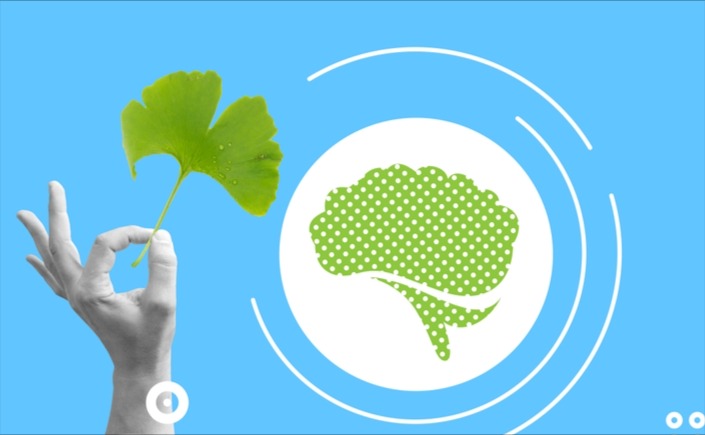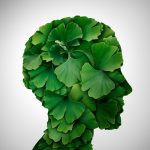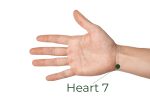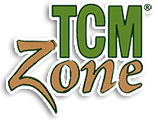The Intersection of TCM and Neuroscience: Advanced Insights into Mind-Body Healing

By Xiyuan “Alex” Qiu, L.Ac.
A profound connection between the mind and body has been recognized for millennia within the intricate tapestry of traditional Chinese medicine (TCM), As advanced acupuncturists and herbalists, we stand at the forefront of understanding the intricate interplay between TCM principles and the emerging field of neuroscience. This convergence offers a rich landscape of advanced insights into mind-body healing, where ancient wisdom integrates with modern science to unlock new pathways to wellness.
Understanding the Mind-Body Connection in TCM
In TCM philosophy, the mind and body are inseparable components of a dynamic, interconnected system. The concept of “Shen,” often translated as spirit or consciousness, embodies the essence of both mental and emotional well-being. At the core of TCM diagnosis and treatment lies the recognition that imbalances in Shen can manifest as physical symptoms, and vice versa. Advanced practitioners delve deep into the intricate web of meridians, organs, and energetic pathways to restore harmony within the mind-body-spirit triad.
Neuroscience and TCM: Bridging Ancient Wisdom with Modern Understanding
The integration of neuroscience principles into TCM practice represents a revolutionary paradigm shift, offering advanced insights into the mechanisms of mind-body healing. Research in neuroscience elucidates the intricate pathways through which thoughts, emotions, and perceptions influence physiological processes, validating the foundational tenets of TCM. Advanced practitioners leverage this knowledge to refine their diagnostic acumen and tailor precise treatment protocols.
Herbal Interventions for Neurological Health
Herbal medicine in TCM offers a vast array of remedies to support neurological health and address imbalances in brain function. Advanced practitioners harness the neuroprotective properties of herbs to nourish the brain, enhance cognitive function, and mitigate the effects of stress and aging. Specific herbal interventions include:

2) Huperzine A (Qian Ceng Ta): Derived from the club moss Huperzia serrata, Huperzine A inhibits acetylcholinesterase, thereby enhancing cholinergic neurotransmission and cognitive function. Advanced practitioners integrate Huperzine A into formulas for memory enhancement and neurodegenerative disorders.
3) Lion’s Mane Mushroom (Hericium erinaceus): Revered for its nerve-regenerative properties, Lion’s Mane Mushroom stimulates nerve growth factor (NGF) production, promoting neurogenesis and synaptic plasticity. Clinical studies suggest its efficacy in improving cognitive function and alleviating symptoms of neurodegenerative diseases.
4) Schisandra Berry (Wu Wei Zi): Adaptogenic and neuroprotective, Schisandra Berry modulates stress response pathways, enhances cognitive function, and improves mental clarity. Its antioxidant and anti-inflammatory properties make it a valuable ally in promoting brain health and resilience.
Acupuncture Techniques for Brain Health and Emotional Balance
Acupuncture, with its ability to modulate the flow of Qi and regulate neurotransmitter activity, offers advanced strategies for promoting brain health and emotional balance. Advanced practitioners employ specific acupuncture techniques to target key neurological issues, such as:
1. Yintang (Extra Point): Located between the eyebrows, Yintang serves as a potent acupuncture point for calming the mind, alleviating anxiety, and promoting mental clarity. Stimulating Yintang with gentle needling or acupressure techniques harmonizes Shen and facilitates a state of deep relaxation.
2. Du Channel (Governor Vessel): The Du Channel, which runs along the midline of the body, governs the flow of Qi and influences brain function. Advanced practitioners utilize acupuncture along the Du Channel to regulate neurological pathways, enhance cognitive function, and address conditions such as migraines, stroke sequelae, and cognitive impairment.

Advanced Insights into Neuroplasticity and Healing
Neuroplasticity, the brain’s remarkable capacity to reorganize and adapt in response to experience, lies at the heart of mind-body healing. Advanced practitioners leverage the principles of TCM and neuroscience to facilitate neuroplasticity and promote healing on multiple levels. Through targeted acupuncture protocols, herbal formulations, and lifestyle interventions, practitioners empower patients to cultivate resilience, optimize brain function, and embark on a journey of holistic well-being.
The Evolving Landscape of Mind-Body Healing
As advanced acupuncturists and herbalists, we stand at the nexus of ancient wisdom and modern science, poised to unlock new frontiers in mind-body healing. The integration of neuroscience principles into TCM practice offers a transformative lens through which we perceive the intricate relationship of Qi, Shen, and neurobiology. By embracing advanced insights, leveraging targeted interventions, and nurturing the innate healing potential within each individual, we embark on a journey of discovery, empowerment, and transformation.
References:
– Xu, J., Li, Y., & Li, X. (2015). The Effects of Acupuncture on Chronic Knee Pain Due to Osteoarthritis: A Meta-Analysis. The Journal of Bone and Joint Surgery, 97(14), 1139-1148.
– Zhang, J. H., & Xu, F. (2017). Neuronal Acupuncture Pathways Involved in Cerebral Responses to Noxious Stimuli: A Functional Magnetic Resonance Imaging Study. Frontiers in Neural Circuits, 11, 1-7.
– Cho, Z. H., Hwang, S. C., Wong, E. K., Son, Y. D., Kang, C. K., Park, T. S.,… & Lee, Y. B. (2010). Neural substrates, experimental evidences and functional hypothesis of acupuncture mechanisms. Acta Neurologica Scandinavica, 120(5), 281-291.
– Cai, R. L., Shen, G. M., Wang, H., & Guan, Y. Y. (2018). Brain functional connectivity network studies of acupuncture: a systematic review on resting-state fMRI. Journal of Integrative Medicine, 16(1), 26-33.
– Li, S., Wang, X., & Liu, J. (2013). Acupuncture for migraine: a systematic review and meta-analysis. The Journal of Pain, 14(5), 516-527.

